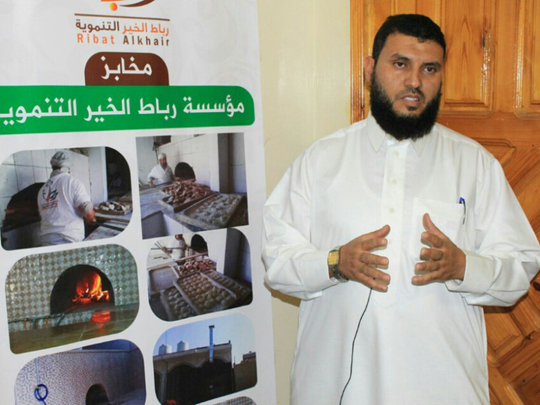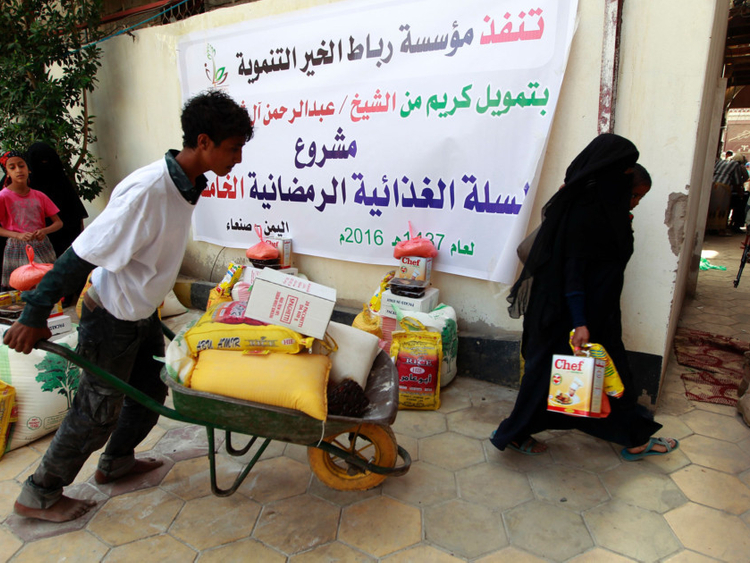
Dubai: When Hussain Ziadi decided to set up a charity in his country of Yemen, he had a clear vision: it would only serve the “poor and needy” and stay away from politics.
His organisation, he says, has survived precisely for this reason, but still is in dire need of support and assistance from international aid organisations in order to meet the huge demands.
“Since our establishment, we have laid a foundation among different parties that we are an independent humanitarian body; that we don’t interfere in the ongoing conflict; and that we don’t belong to any political party,” said 37-year-old Ziadi in a telephone interview with Gulf News from Sana’a.
“We belong to the poor and needy party,” he added, and “we invite sponsors, donors and philanthropists to visit us and check for themselves.”
Ziadi, who established the Rebat Al Khair charity organisation in March 2015, took the decision after nearly 15 years of working with international aid organisations in Africa and with Yemeni aid groups inside the country.
“My experience and contacts secured the financial support for many of my projects and supporters and philanthropists have gained confidence in our work,” he said.
Currently, the charity organisation runs several bakeries and kitchens in many Yemeni governorates offering free and fresh bread as well as fresh cooked meals every day for hundreds of families in need, including those who were displaced by the 15-month-old war in Yemen.
“We have three bakeries in Sana’a serving 1,800 families a day, and a central kitchen cooking meals for 600 families. We have also distributed nearly 1,500 food packages before the beginning of Ramadan,” said Ziadi.
The meals constitute of rice and gravy and a loaf of bread.
“In Taiz, we have two bakeries meeting the daily bread needs of 1,200 families, including 700 displaced families. We also have a kitchen in Hajjah governorate which provides 500 families with daily meals, and one bakery and kitchen in Ha’ard district providing 1,000 families with daily bread and 500 displaced family with meals.”
Yemen, with a population of nearly 25 million, is listed among the least developed nations in the world and among the top impoverished nations in the globe.
The war, which erupted last year, has worsened the situation.
In March 2015, Yemeni civil war erupted between the internationally-recognised government of President Abd Rabbo Mansour Hadi, and Iran-backed Al Houthi militants and their allies from the forces loyal to ousted president Ali Abdullah Saleh, after they took control over the capital of Sana’a and later other cities.
Hadi left the country, and later the Saudi-led Arab coalition launched a military campaign to restore Hadi’s government.
Efforts to reach a peaceful settlement to the war are under way.
According to the UN, over 6,500 people have been killed in Yemen between March 2015 and March 2016. They include 3,218 civilians. Thousands of families have been displaced.
It is estimated that the majority of Yemenis need humanitarian assistance. The huge demand is among the main challenges facing Ziadi, he said.
“If we distribute 100 food packages, the influx of people (shortly afterwards) to the organisation forces us to close the main entrance and go to work using the back doors,” he said.
However, the “biggest challenge is we lack enough aid to meet the demand. We are not getting the cooperation we need from the international organisations”, Ziadi explained.
Last year, the International Committee of the Red Cross (ICRC), offered some food aid, part of which was distributed and part of it used in the “kitchens” projects, Hadi said.
Other than that, there was no response from other international and official bodies, including the World Food Organisation (FAO), Ziadi claims.
However, the International Foundation for Reconstruction and Development, one of the institutions of the Saudi-based Muslim World League, is among the first and main supporters of the Yemeni charity organisation, said Ziadi.
“We are inviting international aid organisations to visit us and check for themselves how we handle the aid. They can look at our database for information on the numbers of families in need,” he said.
“Our doors are always open. We work every day of the week — even on Friday.”













